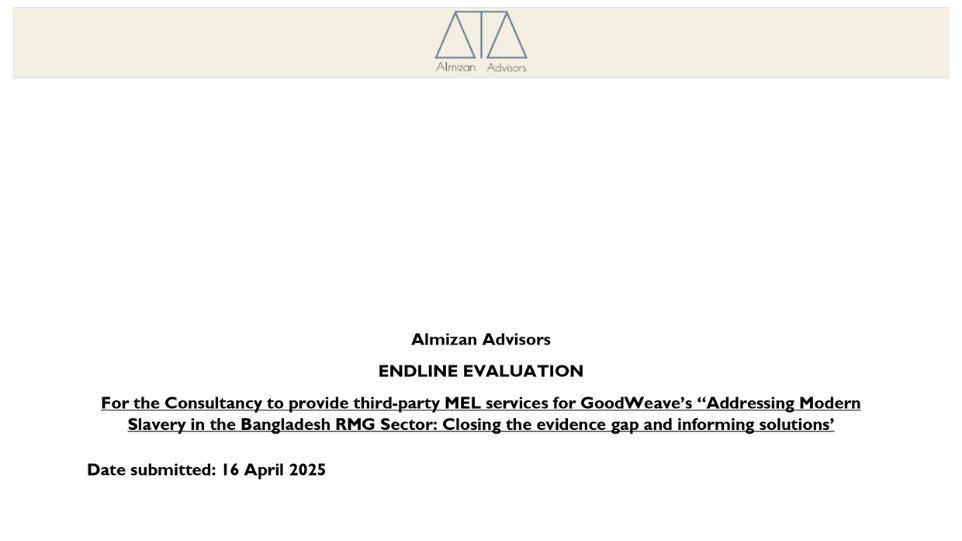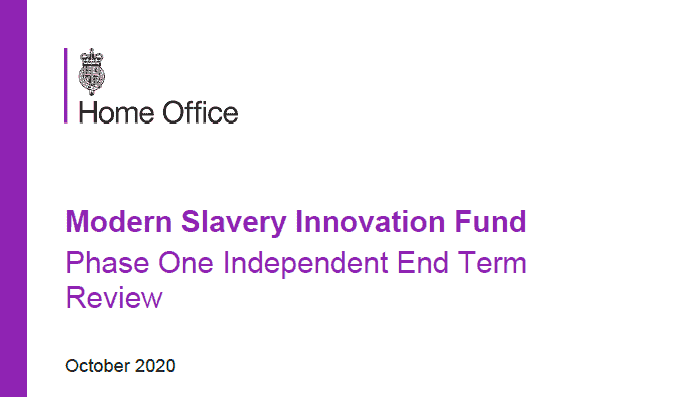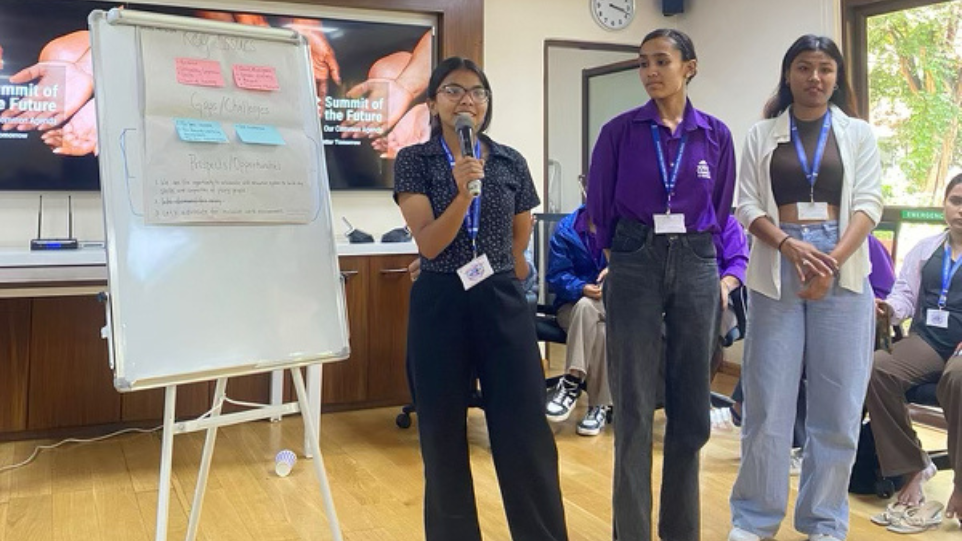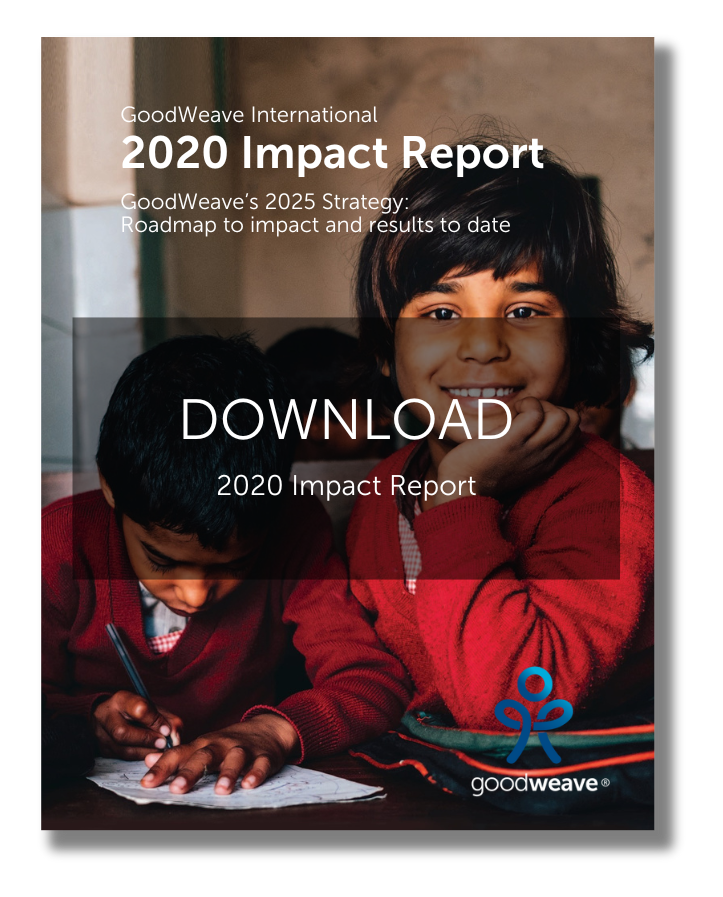11,171 children restored freedom
102,918 children directly provided educational opportunities
133,122 workers protected by the GoodWeave Standard in 2025
GoodWeave recently adjusted the methodology for counting children provided with educational opportunity.
Through years of implementation, we recognize that our whole community approach benefits every child, not just those in the highest tier of risk.
For nearly 30 years, GoodWeave has implemented and refined a set of market-driven programs to stop child labor. Our holistic approach aims to heal and educate those children who have been exploited, while changing the underlying root causes. Our work has led to an overall reduction in incidence of child labor in GoodWeave-inspected supply chains, as well as to freedom and education for children. We are also setting a roadmap with suppliers to improve working conditions for all workers. We’ve accomplished these results in partnership with more than 400 companies worldwide. But behind every data point there is a person, and these are their stories.
Nirmala’s Story
Hear the story of rescued child laborer Nirmala, who found a path to freedom and education through GoodWeave. Nirmala’s story shows that behind every number is a name, a face and a story. We believe every child deserves a childhood – the freedom to laugh, play, and learn.
Evaluation Reports

Endline Evaluation of Goodweave’s Project in the Bangladesh Ready-Made Garment Sector
This report contains findings and recommendations arising from an endline evaluation of Goodweave’s project in Bangladesh: “Addressing Modern Slavery in the Bangladesh RMG Sector: Closing the evidence gap and informing solutions”. The project aimed to establish a comprehensive evidence base of risk, prevalence, and root causes of modern slavery in Bangladesh’s ready-made garment industry.

End-Term Review of Sourcing Freedom: Expanding GoodWeave’s Work to Address Modern Slavery in UK Company Supply Chains
This independent evaluation (pages 8-9), conducted in 2019 by the UK Government’s Modern Slavery Innovation Fund, assesses the results of a two-year project to expand GoodWeave’s supply chain and preventative programming in India. The evaluation finds “strong evidence that Goodweave’s methodology can, over time, produce systemic and behavioural change in different stakeholders – ranging from suppliers, to individuals in bonded/child labour, government and middlemen.”



